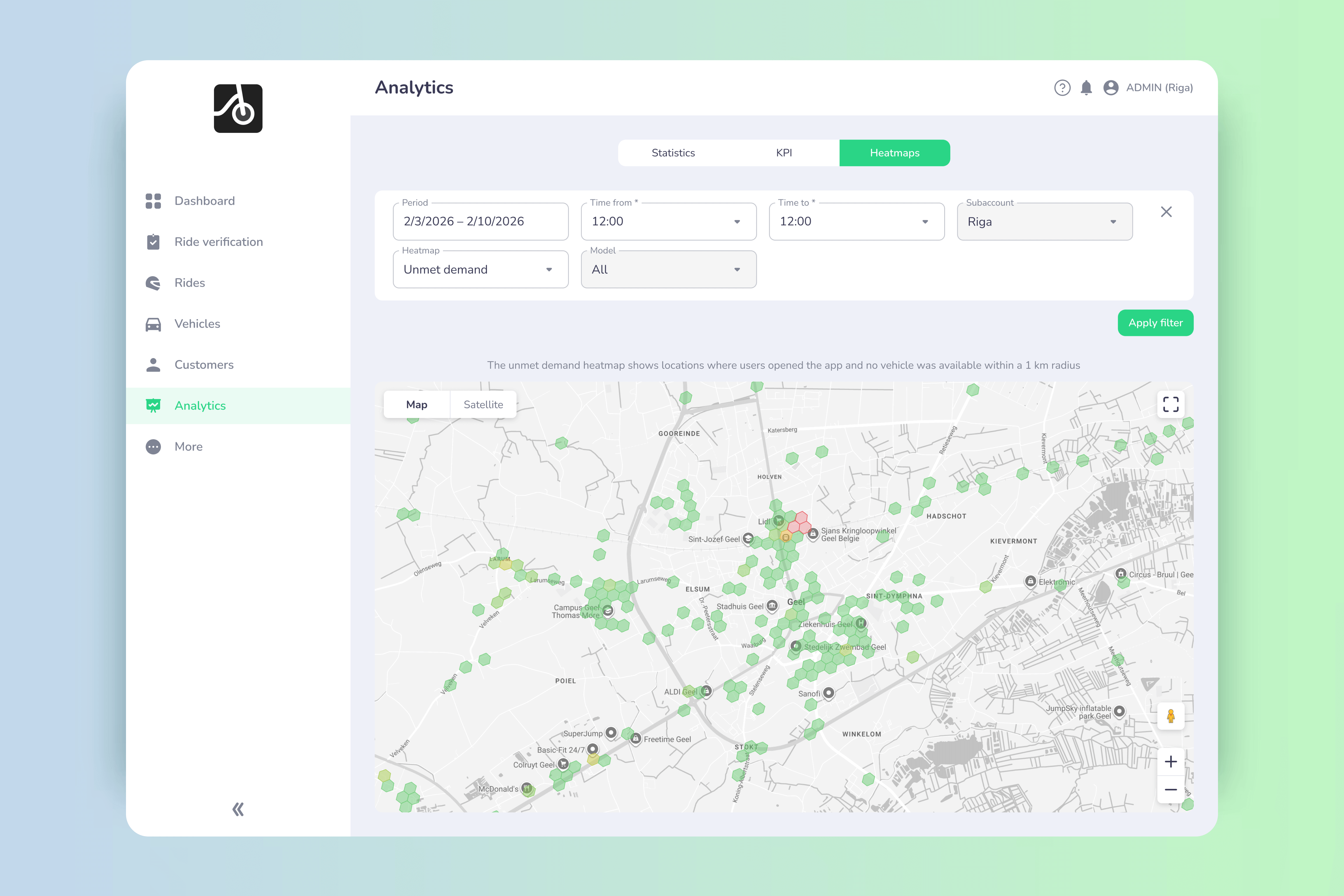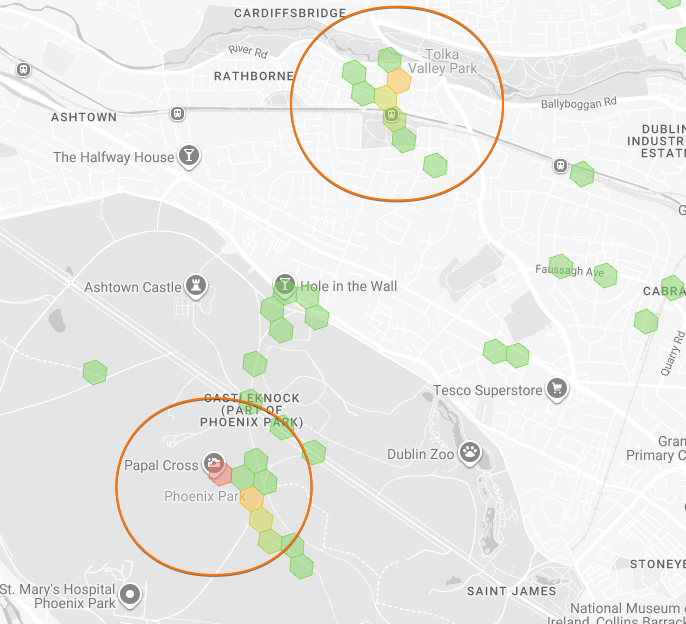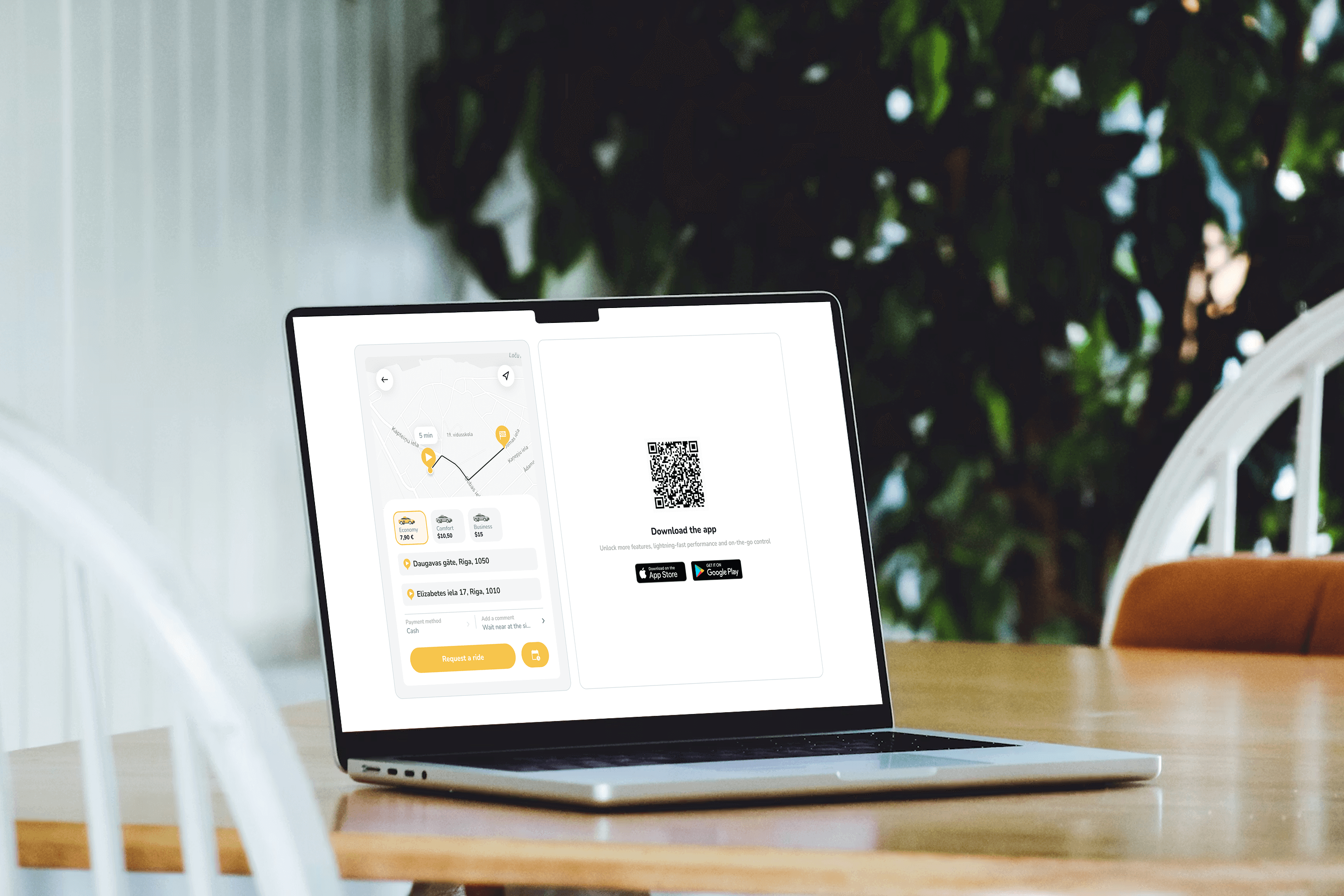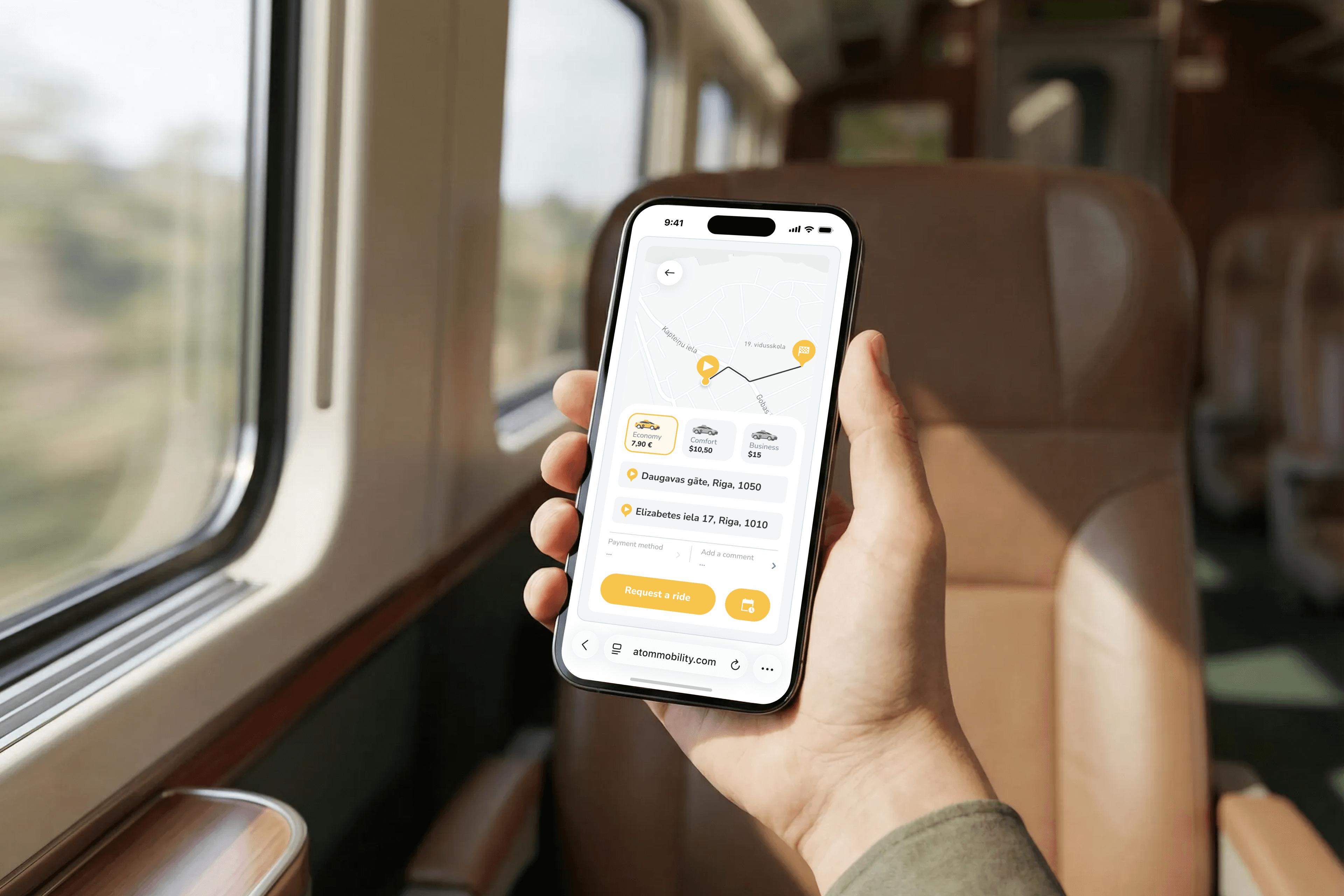
Back in August, together with innovation management company Helve, we launched the open call for ATOM Mobility Lab, a FREE venture-building / accelerator program helping ambitious entrepreneurs to build mobility companies from ZERO in just 9 weeks. Along with October, comes the beginning of our 9-week program. Out of more than 100 applications, we have selected 12 teams from 11 countries developing various shared mobility, ride-hailing, and on-demand services. It's about time you meet them!
Aver Mobility (Bulgaria) 🇧🇬
The utilitarian approach to shared mobility.
Aver Mobility is a car sharing company that’s involved in solving urban mobility challenges. Their mission is widening the adoption of shared mobility with greener means of transportation in Eastern Europe without requiring anyone to step out of their cars. As we all know the personal car is an irreplaceable limb for the average Eastern European. Aver Mobility knows that they couldn't influence that. They don’t want to do so, either. They want to step on that assumption but make it greener. The company will launch with a 100% EV fleet in Sofia (Bulgaria) and plans on replicating the same utilitarian approach while exporting the operational model in the rest of Eastern Europe.
ChargeM (Germany) 🇩🇪
All-inclusive Shared Micro-Mobility System for A2A models
ChargeM provides an end-to-end solution for you guests, employees, and tenants: E-Scooter, wireless charging station, app, labeling, and operations. The company allows locations to passively provide an extra mobility solution to profit from every ride.The system comes with a wireless charging infrastructure for shared e-scooters to significantly reduce costs for collecting/ swapping and recharging of the vehicles. Their automated charging solution will allow providers to reach profitability sooner and make micromobility more sustainable - ecologically, economically, and socially.
Dodai (Ethiopia) 🇪🇹
Affordable mobility ownership in Ethiopia
Dodai is an asset financing platform that offers underbanked customers access to life-enhancing products, and services. The company provides affordable mobility ownership for Ethiopian gig workers who intend to increase their earnings and comfort through the financing of electric two wheelers.
Drop (Romania) 🇷🇴
Electric last-mile deliveries
Drop is a one-stop-shop solution, which not only offers delivery as a solution, but covers a large range of other services such as rider supply management, operational lease and rental options for EVs and LEVs, micro fulfillment as a service, and OOH delivery.
EcoTaxi (Estonia) 🇪🇪
Safe, inclusive, and sustainable mobility
EcoTaxi is the first inclusive and sustainable logistics company in the Baltics that intends to solve emission problems by providing a platform for sustainable vehicles only. Their platform will actively reduce male to female assault by onboarding more female drivers and make accessibility easier for differently-abled persons. ExoTaxi's customers are people who care about the planet and are interested in using sustainable methods to get to wherever they need to go.
Greenclick (US) 🇺🇸
Disrupting over-the-counter desks with technology
Greenclick is scaling the on-site car rental market at hotels where >1% in the US offers car rental services out of 70k hotels. They're carving out a new car rental market by solving congestion, long lines and waiting at airports, and serving guests when all rental locations close, disrupting over-the-counter desks with technology. With their vertical, they're accelerating the adoption of electric vehicles and providing a broad consumer market with their first test drive of an electric car.
JETT (France) 🇫🇷
Rental subscription service without commitment
JETT is an e-moped rental subscription service without commitment. An easy and flexible, weekly or monthly, plan with no hidden or sign-up fees! They handle everything: insurance, maintenance, helmet, and even delivery to your doorstep! You just have to enjoy your own JETT!
MaaS in Tourism (Greece) 🇬🇷
Mobility app for tourists and citizens to use at their destination
MaaS in Tourism company’s app will integrate all the means of transport that are available in the tourist destination that will be developed with the main goal to minimize the use of cars with carbon emissions. They also want to promote the use of public transport combined with other eco-friendly mobility choices such as electric scooters or bikes. This will be a g2c/b2c product and the target group will be mostly municipalities in Greece that are tourist destinations and offer a variety of means of transport and services around mobility. The company wants to make the citizens love their city more and the tourists to enjoy their vacation in a more sustainable and fun way.
MobiEV (Egypt) 🇪🇬
Bringing micro-mobility and convenience to Egypt
MobiEV is on a mission to bring EV Micro-mobility to the Egyptian market of 100 million residents and 13 million annual tourists. Their aim is to pair convenience and pleasure into the service by strategically placing EVs servicing commercial and tourist hotspots. MobiEV will leverage technology, competitive energy prices, and 350 days of sunshine to provide sustainable shared mobility to their customers.
SHRINK Scooters (UK) 🇬🇧
The UK’s first student-run socially conscious scooter sharing platform
SHRINK Scooters are the UK’s first student-run socially conscious scooter sharing platform integrating students living in the peripherals of Durham city into university life. The company plans to involve a fleet of 30-40 scooters to begin with and are currently exchanging discourse with the University and, with the support of numerous consultants, are preparing to tackle the challenge of obtaining a license form the Council.
Sun Spirit (Latvia) 🇱🇻
Bringing sustainable water traffic to RigaSun Spirit believes that Riga has a resource that has not been properly used - the river Daugava. They want to build green, energy-powered, odorless, noiseless, modern, and sustainable traffic within the river and make it enjoyable for city residents and guests. Book on-the-go and hop-on or off whenever you want.
Swap-City (Latvia) 🇱🇻
Compact car-sharing at the lowest prices
Swap-City is a service based in Riga that specializes in electric car sharing, using only unique compact cars with swappable batteries. This makes these cars always available, never out of power. Most exterior and interior spare parts are made by a 3D printer. Light and small two-seater cars that can travel a distance of up to 150km. They bring the most compact cars, at the lowest prices!
During the next 2 months, these 12 teams will work closely together with our lead mentors Johanna Braun and Mario Gamper to successfully launch their businesses at the end of the program. The program will conclude with a demo day on December 1 (16:00 CET), during which, the teams will present their progress and business plans to a panel of jurors to battle for prizes in the value of up to 30k EUR provided by ATOM Mobility, Funderbeam, KNOT, ACTON, Fluctuo, Sumsum, and movmi.
Click below to learn more or request a demo.

📉 Every unmet search is lost revenue. The unmet demand heatmap shows where users actively searched for vehicles but none were available - giving operators clear, search-based demand signals to rebalance fleets 🚚, improve conversions 📈, and grow smarter 🧠.
Fleet operators don’t lose revenue because of lack of demand - they lose it because demand appears in the wrong place at the wrong time. That’s exactly the problem the Unmet demand heatmap solves.
This new analytics layer from ATOM Mobility shows where users actively searched for vehicles but couldn’t find any within reach. Not guesses. Not assumptions. Real, proven demand currently left on the table.
What is the unmet demand heatmap?
The unmet demand heatmap highlights locations where:
- A user opened the app
- Actively searched for available vehicles
- No vehicle was found within the defined search radius
In other words: high-intent users who wanted to ride, but couldn’t. Unlike generic “app open” data, unmet demand is recorded only when a real vehicle search happens, making this one of the most actionable datasets for operators.
Why unmet demand is more valuable than app opens
Many analytics tools track where users open the app (ATOM Mobility provides this data too). That’s useful - but incomplete. Unmet demand answers a much stronger question:
Where did users try to ride and failed? That difference matters.
Unmet demand data is:
✅ Intent-driven (search-based, not passive)
✅ Directly tied to lost revenue
✅ Immediately actionable for rebalancing and expansion
✅ Credible for discussions with cities and partners

How it works
Here’s how the logic is implemented under the hood:
1. Search-based trigger. Unmet demand is recorded only when a user performs a vehicle search. No search = no data point.
2. Distance threshold. If no vehicle is available within 1,000 meters, unmet demand is logged.
- The radius can be customized per operator
- Adaptable for dense cities vs. suburban or rural areas
3. Shared + private fleet support. The feature tracks unmet demand for:
- Shared fleets
- Private / restricted fleets (e.g. corporate, residential, campus)
This gives operators a full picture across all use cases.
4. GPS validation. Data is collected only when:
- GPS is enabled
- Location data is successfully received
This ensures accuracy and avoids noise.
Smart data optimization (no inflated demand)
To prevent multiple searches from the same user artificially inflating demand, the system applies intelligent filtering:
- After a location is stored, a 30-minute cooldown is activated
- If the same user searches again within 30 minutes And within 100 meters of the previous location → the record is skipped
- After 30 minutes, a new record is stored - even if the location is unchanged
Result: clean, realistic demand signals, not spammy heatmaps.
Why this matters for operators
📈 Increase revenue
Unmet demand shows exactly where vehicles are missing allowing you to:
- Rebalance fleets faster
- Expand into proven demand zones
- Reduce failed searches and lost rides
🚚 Smarter rebalancing
Instead of guessing where to move vehicles, teams can prioritize:
- High-intent demand hotspots
- Time-based demand patterns
- Areas with repeated unmet searches
🏙 Stronger city conversations
Unmet demand heatmaps are powerful evidence for:
- Permit negotiations
- Zone expansions
- Infrastructure requests
- Data-backed urban planning discussions
📊 Higher conversion rates
Placing vehicles where users actually search improves:
- Search → ride conversion
- User satisfaction
- Retention over time
Built for real operational use
The new unmet demand heatmap is designed to work alongside other analytics layers, including:
- Popular routes heatmap
- Open app heatmap
- Start & end locations heatmap
Operators can also:
- Toggle zone visibility across heatmaps
- Adjust time periods (performance-optimized)
- Combine insights for strategic fleet planning
From missed demand to competitive advantage
Every unmet search is a signal. Every signal is a potential ride. Every ride is revenue. With the unmet demand heatmap, operators stop guessing and start placing vehicles exactly where demand already exists.
👉 If you want to see how unmet demand can unlock growth for your fleet, book a demo with ATOM Mobility and explore how advanced heatmaps turn data into decisions.

🚕 Web-booker is a lightweight ride-hail widget that lets users book rides directly from a website or mobile browser - no app install required. It reduces booking friction, supports hotel and partner demand, and keeps every ride fully synced with the taxi operator’s app and dashboard.
What if ordering a taxi was as easy as booking a room or clicking “Reserve table” on a website?
Meet Web-booker - a lightweight ride-hail booking widget that lets users request a cab directly from a website, without installing or opening the mobile app.
Perfect for hotels, business centers, event venues, airports, and corporate partners.
👉 Live demo: https://app.atommobility.com/taxi-widget
What is Web-booker?
Web-booker is a browser-based ride-hail widget that operators can embed or link to from any website.
The booking happens on the web, but the ride is fully synchronized with the mobile app and operator dashboard.
How it works (simple by design)
No redirects. No app-store friction. No lost users.
- Client places a button or link on their website
- Clicking it opens a new window with the ride-hail widget
- The widget is branded, localized, and connected directly to the operator’s system
- Booking instantly appears in the dashboard and mobile app
Key capabilities operators care about

🎨 Branded & consistent
- Widget color automatically matches the client’s app branding
- Feels like a natural extension of the operator’s ecosystem
- Fully responsive and optimized for mobile browsers, so users can book a ride directly from their phone without installing the app
📱 App growth built in
- QR code and App Store / Google Play links shown directly in the widget
- Smooth upgrade path from web → app
⏱️ Booking flexibility
- Users can request a ride immediately or schedule a ride for a future date and time
- Works the same way across web, mobile browser, and app
- Scheduled bookings are fully synchronized with the operator dashboard and mobile app
🔄 Fully synced ecosystem
- Country code auto-selected based on user location
- Book via web → see the ride in the app (same user credentials)
- Dashboard receives booking data instantly
- Every booking is tagged with Source:
- App
- Web (dashboard bookings)
- Booker (website widget)
- API
🔐 Clean & secure session handling
- User is logged out automatically when leaving the page
- No persistent browser sessions
💵 Payments logic
- New users: cash only
- Existing users: can choose saved payment methods
- If cash is not enabled → clear message prompts booking via the app
This keeps fraud low while preserving conversion.
✅ Default rollout
- Enabled by default for all ride-hail merchants
- No extra setup required
- Operators decide where and how to use it (hotel partners, landing pages, QR posters, etc.)
Why this matters in practice
Web-booker addresses one of the most common friction points in ride-hailing: users who need a ride now but are not willing to download an app first. By allowing bookings directly from a website, operators can capture high-intent demand at the exact moment it occurs - whether that is on a hotel website, an event page, or a partner landing page.
At the same time, Web-booker makes partnerships with hotels and venues significantly easier. Instead of complex integrations or manual ordering flows, partners can simply place a button or link and immediately enable ride ordering for their guests. Importantly, this approach does not block long-term app growth. The booking flow still promotes the mobile app through QR codes and store links, allowing operators to convert web users into app users over time - without forcing the install upfront.
Web-booker is not designed to replace the mobile app. It extends the acquisition funnel by adding a low-friction entry point, while keeping all bookings fully synchronized with the operator’s app and dashboard.
👉 Try the demo
https://app.atommobility.com/taxi-widget
Want to explore a ride-hail or taxi solution for your business - or migrate to a more flexible platform? Visit: https://www.atommobility.com/products/ride-hailing


